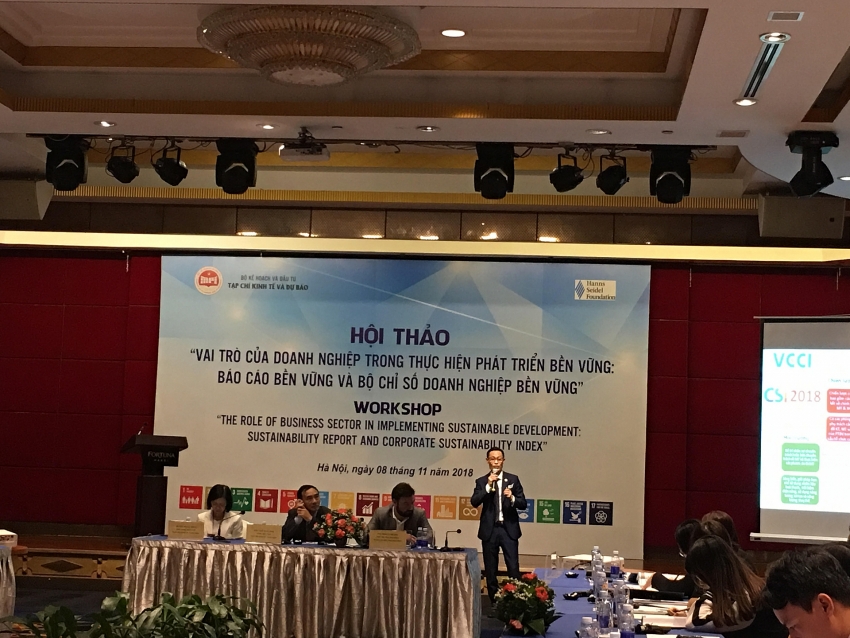Numerous firms still ignore with sustainable development goals
 |
| Vietnam needs to elicit more support from the private sector to reach its sustainability goals |
At the workshop on the “Role of Businesses in Implementing Sustainable Development” organised by the Economic and Forecast Magazine of the Ministry of Planning and Investment, Moritz Michel, deputy director of Hanns Seidel Foundation in Vietnam, said that Vietnam has already placed the SDGs into a National Action Plan and has been emphasising their implementation to sustain economic growth alongside with ensuring social progress, justice, and environmental and ecological protection by 2030.
Meanwhile, the a report of the Vietnam Business Council for Sustainable Development (VBCSD) showed that 92 per cent of enterprises know about SDGs and 71 per cent of enterprises said that they have plans to implement these goals, however, only 13 per cent of firms undertand what they have to do to realise these goals and 29 per cent of firms built specific plans for SDGs.
“The private sector, especially the business sector, will play an increasingly important role as a source of investment to realise the implementation of sustainable development goals by 2030. Prime Minister Nguyen Xuan Phuc underlined the current policy and said that Vietnam is planning on generating half of its economic output from the private sector in the next two years,” Moritz Michel said.
“Besides, the financial support from businesses also contributes especially to SDG 12 “Ensuring sustainable production and consumption” by encouraging them to adopt sustainable practices,” he added.
According to experts at the workshop, in order to accelerate the implementation of the above goals, businesses should incorporate the SDGs into their strategies. They should be proactive in enhancing competitiveness, grasping opportunities, renovating and applying advanced business models, especially solutions to sustainability challenges for long-term rather than short-term benefits.
The SDGs, otherwise known as the Global Goals, are a universal call to action to end poverty, protect the planet, and ensure that all people enjoy peace and prosperity.
These 17 goals build on the successes of the Millennium Development Goals, while including new areas such as climate change, economic inequality, innovation, sustainable consumption, as well as peace and justice, among others. The goals are interconnected – often the key to success in one area will involve tackling issues more commonly associated with another.
What the stars mean:
★ Poor ★ ★ Promising ★★★ Good ★★★★ Very good ★★★★★ Exceptional
Related Contents
Latest News
More News
- Bac Ai Pumped Storage Hydropower Plant to enter peak construction phase (January 27, 2026 | 08:00)
- ASEAN could scale up sustainable aviation fuel by 2050 (January 24, 2026 | 10:19)
- 64,000 hectares of sea allocated for offshore wind surveys (January 22, 2026 | 20:23)
- EVN secures financing for Quang Trach II LNG power plant (January 17, 2026 | 15:55)
- PC1 teams up with DENZAI on regional wind projects (January 16, 2026 | 21:18)
- Innovation and ESG practices drive green transition in the digital era (January 16, 2026 | 16:51)
- Bac Ai hydropower works stay on track despite holiday period (January 16, 2026 | 16:19)
- Fugro extends MoU with PTSC G&S to support offshore wind growth (January 14, 2026 | 15:59)
- Pacifico Energy starts commercial operations at Sunpro Wind Farm in Mekong Delta (January 12, 2026 | 14:01)
- Honda launches electric two-wheeler, expands charging infrastructure (January 12, 2026 | 14:00)

 Tag:
Tag:





















 Mobile Version
Mobile Version